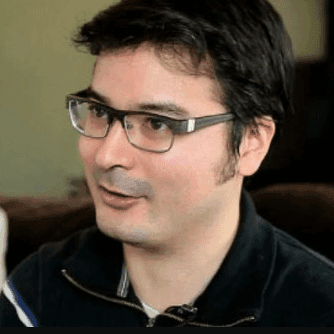
Charles Hoskinson
Charles Hoskinson: Ethereum Co-Founder and Cardano Creator
Charles Hoskinson (born 1987) is a prominent American mathematician and technology entrepreneur, highly influential in the Blockchain space as both a co-founder of Ethereum and the founder of Cardano. Known for his rigorous, research-driven approach to blockchain development, Hoskinson leads Input Output Global (IOG, formerly IOHK), the engineering company primarily responsible for Cardano's development, aiming to create a scalable, sustainable, and interoperable platform based on peer-reviewed academic research and formal methods.
"Cardano is designed to be the most balanced and sustainable ecosystem, better than anything that's come before it." – Charles Hoskinson
Early Life, Education, and Ethereum Involvement
Born in Hawaii, USA, Charles Hoskinson attended the Metropolitan State University of Denver and the University of Colorado Boulder, focusing on analytic number theory and mathematical logic. He left his studies before completing his doctorate to pursue entrepreneurial ventures, particularly in the burgeoning cryptocurrency field.
His deep interest in cryptography and decentralized systems led him to become one of the original eight co-founders of Ethereum in late 2013 / early 2014, alongside figures like Vitalik Buterin. Hoskinson played a significant role in Ethereum's early formation, particularly in establishing its legal structure in Switzerland and contributing to the initial design concepts. However, he departed from the project in June 2014 due to fundamental disagreements with other founders, primarily concerning Ethereum's governance structure; Hoskinson favored a for-profit entity with a more traditional structure, while others pushed for the non-profit foundation model that was ultimately adopted.

Founding IOHK and Creating Cardano (2015 Onwards)
Following his departure from Ethereum, Hoskinson co-founded IOHK (Input Output Hong Kong, now Input Output Global) with former Ethereum colleague Jeremy Wood in 2015. IOHK was established as a research and engineering company dedicated to building cryptocurrencies and blockchain solutions using a rigorous, science-based methodology.
IOHK's flagship project is Cardano, a public blockchain platform conceived in 2015 whose development began shortly thereafter, with its mainnet launching in stages starting in 2017 (Byron era). Cardano was envisioned as a "third-generation" blockchain, designed explicitly to address perceived shortcomings of earlier platforms like Bitcoin (first-generation) and Ethereum (second-generation) in areas such as:
- Scalability: Handling a large volume of transactions efficiently.
- Interoperability: Enabling communication and interaction between different blockchain networks.
- Sustainability: Ensuring long-term viability through energy-efficient consensus and robust governance/treasury systems.
Learn more about Cardano at Cardano.org.

Cardano's Philosophy and Architecture
Cardano distinguishes itself through several core principles and design choices championed by Hoskinson and IOHK:
Cardano distinguishes itself through several core principles and design choices championed by Hoskinson and IOHK:
- Research-Driven Development: Cardano's development process is uniquely grounded in peer-reviewed academic research. Key components and protocols are often published and vetted by scientists and cryptographers before implementation, aiming for high levels of security and correctness through formal methods.
- Layered Architecture: The blockchain is designed with separate layers for settlement and computation. The Cardano Settlement Layer (CSL) manages account balances and transfers of Cardano's native cryptocurrency, ADA, while the Cardano Computation Layer (CCL) handles Smart Contracts logic and decentralized applications (dApps). This separation aims to enhance flexibility and maintainability.
- Ouroboros Proof-of-Stake: Cardano utilizes Ouroboros, a family of bespoke Proof-of-Stake (PoS) consensus protocols developed by IOHK and academic partners. Ouroboros was one of the first PoS protocols with mathematically proven security guarantees and is significantly more energy-efficient than Proof-of-Work (PoW) systems like Bitcoin's.
- Phased Rollout (Eras): Cardano's development follows a structured roadmap divided into distinct eras, each focusing on specific functionality: Byron (Foundation), Shelley (Decentralization), Goguen (Smart Contracts), Basho (Scaling), and Voltaire (Governance). This methodical approach reflects the platform's long-term vision.
Hoskinson's Vision and Advocacy
Throughout his career, Hoskinson has been a vocal advocate for specific principles within the blockchain space:
- Academic Rigor: He consistently emphasizes the importance of formal methods, peer review, and evidence-based engineering in building secure and reliable blockchain infrastructure, contrasting this with what he sometimes perceives as faster, less rigorous approaches elsewhere.
- True Decentralization: Hoskinson stresses the need for decentralized governance structures beyond just network consensus. Cardano's Project Catalyst serves as its decentralized treasury and proposal system, allowing ADA holders to vote on funding ecosystem development, embodying this principle.
- Global Financial Inclusion: He frequently speaks about blockchain's potential to provide accessible financial services, digital identity, and secure record-keeping for underserved populations globally, particularly in developing nations.
Criticism and Public Perception
Charles Hoskinson's approach and public persona have also drawn criticism:
- Development Pace: The most common critique directed at Cardano is its deliberate, research-heavy development cycle, which critics argue has led to slower deployment of key features (like smart contracts) compared to competitors who prioritized faster iteration. Hoskinson defends this pace as necessary for building sustainable and secure technology.
- Communication Style: His sometimes direct and confrontational style on social media and in public appearances has occasionally led to controversy within the broader crypto community.
Legacy and Impact on the Crypto World
Charles Hoskinson's influence on the blockchain industry is significant and multifaceted:
- He was instrumental in the early technical conceptualization and establishment of Ethereum, the platform that brought smart contracts to prominence.
- Through IOHK and Cardano, he pioneered a unique development philosophy emphasizing academic peer review and formal methods in blockchain engineering.
- He is a major proponent and innovator in Proof-of-Stake consensus mechanisms via the Ouroboros protocol family.
- He continues to be a leading voice advocating for decentralized governance, interoperability solutions, and the potential of blockchain technology beyond simple cryptocurrencies.
Quotes from Charles Hoskinson
"We’ve never lost sight of our goal, which is to create a secure and scalable infrastructure for decentralized applications that will stand the test of time."
"Blockchain technology has the potential to democratize finance, allowing anyone, anywhere, to participate in a global economy without intermediaries."
Conclusion: A Research-Focused Blockchain Architect
Charles Hoskinson is a central figure in the cryptocurrency landscape, recognized for his foundational contributions to Ethereum and his subsequent creation of the Cardano blockchain platform through IOHK. His approach is distinctly characterized by a commitment to mathematical rigor, peer-reviewed research, and formal development methodologies, aiming to build blockchain infrastructure that is provably secure, sustainable, and scalable for the long term. While Cardano's methodical development pace invites debate, Hoskinson's influence in advancing Proof-of-Stake consensus, advocating for robust decentralized governance, and championing a research-first philosophy ensures his lasting impact on the ongoing evolution of blockchain technology.

